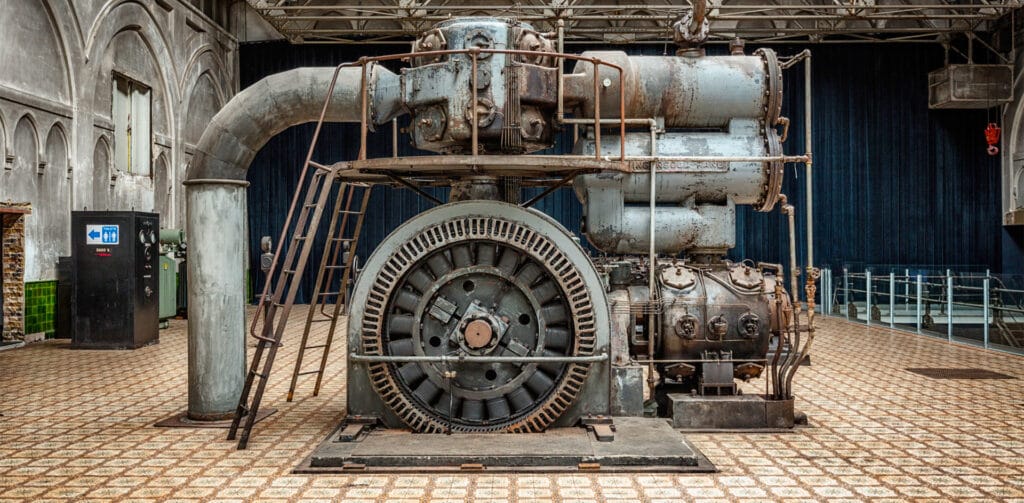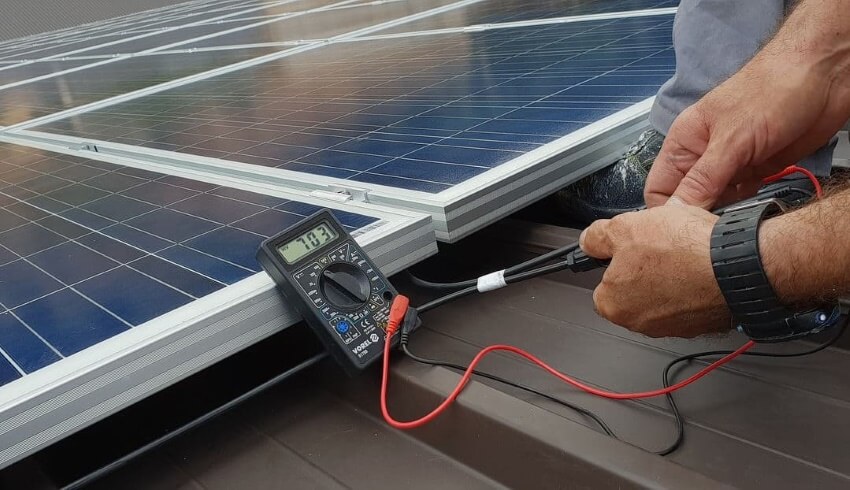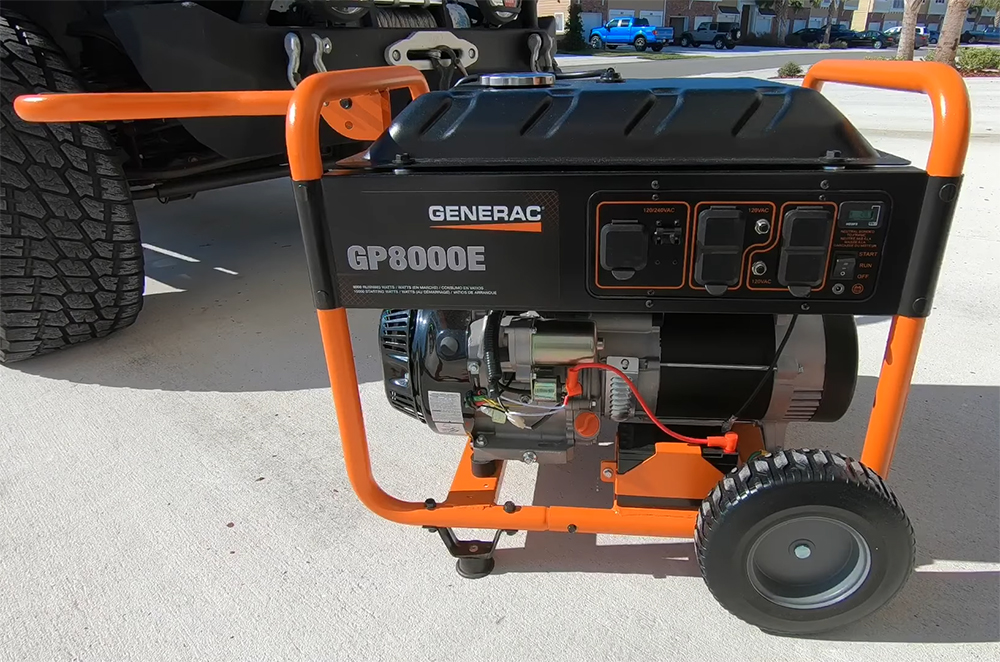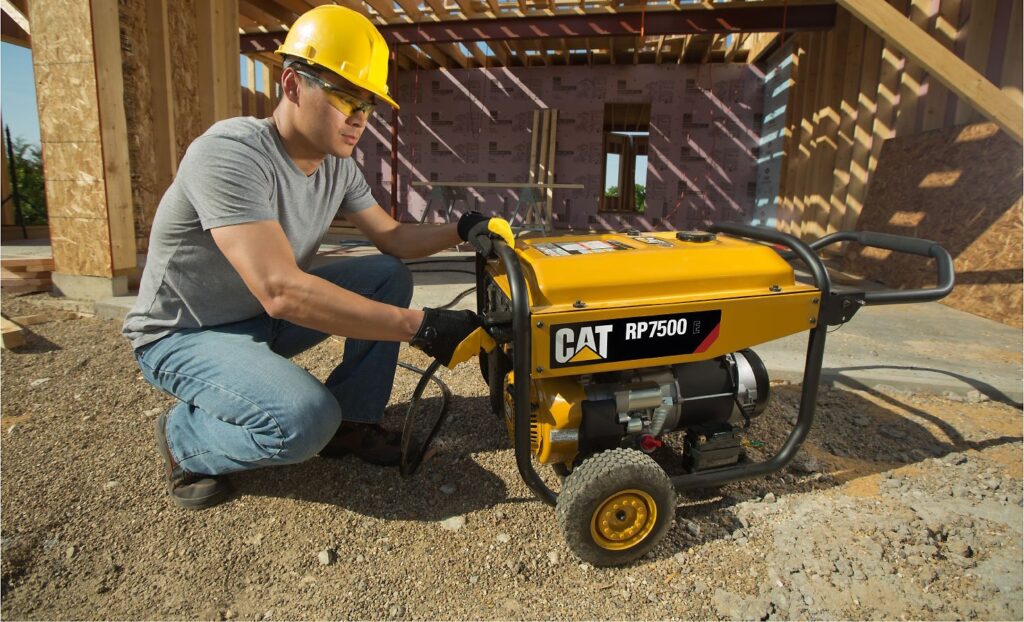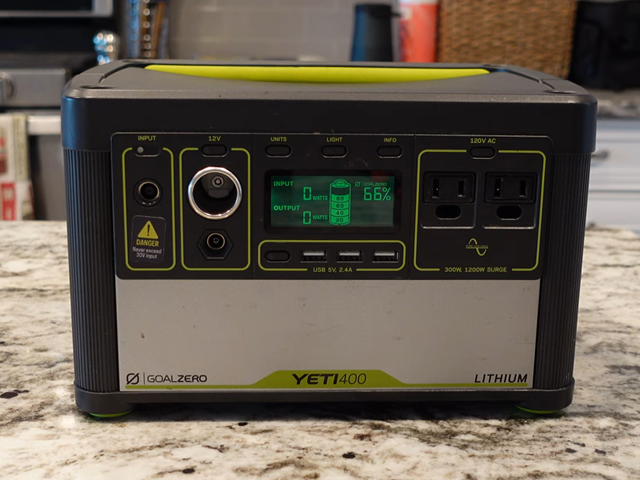If you need portable power, and lots of it, there are few companies with more options than Westinghouse and Champion. To be sure, these two brands have innovated in lower-power portable generators, but one of their shared strengths is in developing high-power inverter and conventional power units. Both companies make ease of use a priority as well, helping to ensure that you can reliably get the power you need.
Choosing between Westinghouse vs. Champion generators can be difficult, but we’re here to help. In this guide, we’ll compare Westinghouse and Champion by seeing just how comparable generators from the two companies stack up.
Westinghouse is perhaps the oldest generator company that’s still around today. The company has been installing generators since the turn of the 20th century, when electrification was first taking hold across the northeastern US. It was also responsible for inventing the first alternating current transformer, a technology that is still in use today.
A lot has changed in more than 100 years of power production technology. However, Westinghouse still brings the innovation and reliability that early generator development required. Today, the company is renowned for making generators that are affordable, durable, and packed with user-friendly features.
Champion’s history is extremely short by comparison – the California-based company was founded in 2003, making it one of the newest entrants into the generator industry. However, the company’s focus on producing inexpensive generators that can deliver a lot of power with little fuss has caught on with homeowners and commercial power users alike. In just over 15 years, Champion has sold more than 2.5 million generators worldwide.
Both Champion and Westinghouse have put a lot of effort into developing inverter generator technology. But, unlike some other brands, the two companies haven’t stopped innovating on conventional generator designs, either. As a result, both Champion and Westinghouse have very full generator lineups, with a range of offerings that includes dual-fuel conventional generators and extremely high-wattage generators.
While Westinghouse and Champion each pride themselves on producing reliable and durable generators, the two companies have an important difference in their warranty policies. Champion offers a three-year warranty on all of its generators, regardless of how you use them. Westinghouse, though, only offers a three-year warranty if you’re using your generator for home power. Commercial users will only get a shortened one-year warranty from Westinghouse.
The best way to understand the ways in which Westinghouse and Champion are different is to look at some competing generators from the two companies. Here, we’ll look at three pairings of popular models, including inverter generators, dual-fuel conventional generators, and high-power conventional generators.
| Westinghouse iGen4500 | Champion Power Equipment 100573 | |
| Type | Inverter | Inverter |
| Peak watts | 4,500 | 4,000 |
| Rated watts | 3,700 | 3,500 |
| Engine | 7 HP Westinghouse OHV | Champion 4 stroke |
| Displacement | 224cc | 224cc |
| Fuel tank | 3.4 gal. | 2.9 gal. |
| Run time | 18 hrs (1/4 load) | 17 hrs (1/4 load) |
| Outlets | (2) 120V 20A 5-20R; (1) 120V 30ATT-30R RV; (2) 5V USB Ports | (1) 120V 30A (TT-30R); (1) 120V 20A Duplex (5-20R); (1) 12V DC Automotive |
| Start type | Electric, recoil, remote | Electric, recoil, remote |
| Noise level | 52 dBA | 64 dBA |
| Dimensions | 24.5 x 20 x 17.5 in | 23.5 x 24.8 x 20.5 in |
| Weight | 98 lbs | 96.8 lbs |
| Warranty | 3-year limited (residential), 1-year limited (commercial) | 3-year limited |
| VIEW ON AMAZON | VIEW ON AMAZON |
The Westinghouse iGen4500 and Champion 100573 are two inverter generators with quite a bit of power to offer. The iGen4500 boasts 4,500 watts of surge power – one of the highest outputs of any inverter generators – and 3,700 watts of continuous power. The Champion 100573 is close behind, with 4,000 watts of surge power and 3,500 watts of running power. Both generators are powered by large 224cc four-stroke engines.
One of the nice things about each of these generators is that you can run them for a full day of work without having to stop and refuel. Both can run for nearly 10 hours at a 50% load, although the Westinghouse model will guzzle slightly more fuel in the process.
The outlet panels and ease of use features are also extremely closely matched. Both generators offer a 120-volt duplex and a 120-volt RV-ready twist-lock outlet, which makes either option suitable for RV owners. One notable difference is that the Westinghouse generator offers a pair of USB outlets for charging small electronics, while the Champion generator has a more versatile 12-volt DC outlet. However, the Westinghouse generator has an LED multimeter while the Champion model does not.
Both of these models are equipped with remote electric start functions in addition to a traditional recoil starter. That’s great if you want to start your generator without leaving your home or RV.
The two generators are about equal in weight and both are mounted on wheels. However, you may have an easier time rolling and lifting the Champion model, since the wheels are larger and it’s mounted on a steel frame.
The biggest difference between these generators is the amount of noise they produce. The Westinghouse model is impressively quiet, making just 52 dB of noise at a 25% load. By contrast, the Champion generator, at 64 dB, is more than 10 times louder. That difference, along with the added power, is more than enough to justify the extra cost of the Westinghouse iGen4500 compared to the Champion 100573.
| Westinghouse WGen7500DF | Champion Power Equipment 100165 | |
| Type | Conventional | Conventional |
| Peak watts | 9,500 (gasoline), 8,550 (propane) | 9,375 (gasoline), 8,400 (propane) |
| Rated watts | 7500 (gasoline), 6750 (propane) | 7500 (gasoline), 6750 (propane) |
| Engine | Westinghouse OHV 4 stroke | Champion 4 stroke |
| Displacement | 420cc | 439cc |
| Fuel tank | 6.6 gal. | 6 gal. |
| Run time | 16 hrs (1/4 load), 11 hrs (1/2 load) | 8 hrs (1/2 load on gas), 5.5 hrs (1/2 load on propane) |
| Outlets | (1) 120/240V 30A (L14-30R); (2) Duplex 120V 20A GFCI (5-20R); (2) 5V USB Ports | (1) 120/240V 30A Locking (L14-30R); (1) 120V 30A Locking (L5-30R); (2) GFCI 120V 20A Duplex (5-20R) |
| Start type | Electric, remote, recoil | Electric, recoil |
| Noise level | 74 dBA | 74 dBA |
| Dimensions | 27.2 x 26 x 26.1 in | 27.8 x 28.7 x 26.4 in |
| Weight | 194 lbs | 202.4 lbs |
| Warranty | 3-year limited (residential), 1-year limited (commercial) | 3-year limited |
| VIEW ON AMAZON | VIEW ON AMAZON |
The Westinghouse WGen7500DF and Champion 100165 are almost equal in price, which allows us to compare these generators entirely on the basis of features. Both generators are dual-fuel conventional models with a lot of power to offer. The Westinghouse has a slight edge when it comes to surge wattage, but the two generators each deliver 7,500 watts of running power on gasoline and 6,750 watts on propane.
While both generators have efficient four-stroke engines, the Westinghouse delivers a significantly longer runtime as a result of its large 6.6-gallon gas tank. You can get up to 11 hours of power without refueling at a 50% load, compared to eight hours on the Champion model (still not bad by any measure). It’s also worth noting that you can seamlessly switch between gasoline and propane on the Westinghouse generator, but you need to turn the Champion unit off to switch fuels.
The Champion 100165 does have a bit of an edge in the outlet panel, though. Each generator has a 120-volt/240-volt outlet that can be used to power heavy-duty appliances as well as four household 120-volt outlets. However, the Champion generator also adds a second 120-volt twist-lock outlet, which is perfect for RVs. Both generators come with digital multimeters so you can monitor your power output and remaining runtime. In addition, the two generators each offer electric start functions, although only the Westinghouse model comes with a remote starter.
The two generators are closely matched on noise and portability. While the Westinghouse model is eight pounds lighter, neither generator is light and you’ll need four people to lift these power units. Both generators are mounted on steel frames with pneumatic wheels for rolling on any surface. The two generators are noisy, producing 74 dB at a 25% load.
Overall, these are both very good generators. The extra outlet on the Champion is a draw, but so are the higher surge power and runtime on the Westinghouse model. It’s up to you to decide what features are most important to you when deciding between these two.
| Westinghouse WGen9500 | Champion Power Equipment 100110 | |
| Type | Conventional | Conventional |
| Peak watts | 12,500 | 11,500 |
| Rated watts | 9,500 | 9,200 |
| Engine | Westinghouse OHV 4 stroke | Champion 4 stroke |
| Displacement | 457cc | 459сс |
| Fuel tank | 6.6 gal. | 7.7 gal. |
| Run time | 17.5 hrs (1/4 load), 12 hrs (1/2 load) | 10 hrs (1/2 load) |
| Outlets | (2) Duplex 120V 20A (5-20R); (1) 120/240V 30A (L14-30R); (1) 120/240V 50A (14-50R); (2) 5V USB ports | 120/240V 50A (14-50R), 120/240V 30A Locking (L14-30R); (2) GFCI 120V 20A Duplex (5-20R) |
| Start type | Electric, remote, recoil | Electric, recoil |
| Noise level | 74 dBA | 74 dBA |
| Dimensions | 27.2 x 26.5 x 26.1 in | 27.7 x 27.6 x 26.6 in |
| Weight | 220 lbs | 213 lbs |
| Warranty | 3-year limited (residential), 1-year limited (commercial) | 3-year limited |
| VIEW ON AMAZON | VIEW ON AMAZON |
The Westinghouse WGen9500 and Champion 100110 generators look and feel like larger, more powerful versions of the WGen7500DF and 100165. They’re not dual-fuel generators, but they offer a massive amount of power – the WGen9500 delivers 12,500 watts of surge power and 9,500 watts of running power, while the 100110 delivers 11,500 watts of surge power and 9,200 watts of running power.
Although the Westinghouse offers more power and has a smaller fuel tank, it actually boasts a slightly longer runtime than the Champion generator. That’s a good sign of the efficiency of the Westinghouse WGen9500, which can save you money on gas in the long run. Either way, both generators can give you a full day of power without interruption.
These two generators offer matching outlets. Both have a 50-amp outlet capable of switching between 120-volt and 240-volt power, as well as a 30-amp outlet capable of the same. They also each have four household 120-volt outlets and digital multimeters to let you monitor your power load. The only noticeable difference is that the Westinghouse generator can be started remotely – both generators have an electric push-button start and recoil starter.
The two power units are also matched on noise and portability. Both produce 74 dB of noise, the same as the smaller dual-fuel units. They’re also mounted on steel frames with pneumatic wheels to help you move them around, although lifting them can be very difficult just because of how heavy a generator needs to be to deliver this much power.
On the whole, these two generators are very closely aligned in features. Where they differ, it’s typically because the Westinghouse WGen9500 offers an extra touch. That model is also about $100 cheaper than the Champion 100110, which can give you an extra nudge towards Westinghouse.
Both Westinghouse and Champion offer high-quality generators that span the range from inverter to conventional to dual-fuel. It’s important to look closely at the features that help these two brands stand out. For example, Champion often offers an extra outlet or a better system for transporting your generator. Westinghouse generators, on the other hand, are quieter, slightly less expensive, or offer more surge power.
Overall, the two companies’ generators are closely matched on price and features. That can make choosing between Westinghouse vs. Champion generators tough. You’ll need to look closely at the generator offerings that fit your needs and take care in deciding what extras are most important to you.
